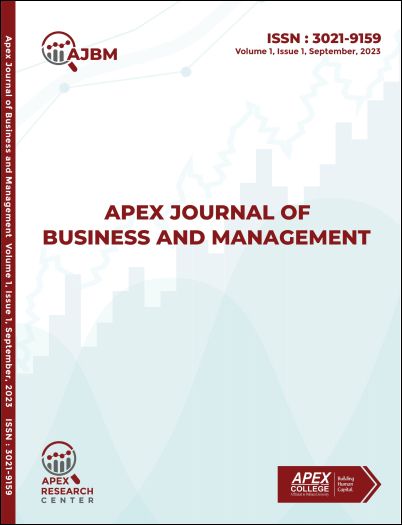Women Empowerment in Self Help Groups through Microfinance: A Case Study of Rautahat District
Keywords:
self help group, women, empowerment, analytical, social changeAbstract
Microfinance institutions have assumed responsibility for promoting women's empowerment through economic and social development in developing nations. The primary objective of this study is to analyze the impact of microfinance on women's empowerment in Rautahat district. Women empowerment are measured by income & savings, ownership of assets, decision making, and mobility. This study is based on primary data through administered questionnaire to 209 women those who are involved in microfinance program in Rautahat District using convenience sampling method on a five-point Likert scale. The research employed descriptive, correlational, and regression techniques using the Statistical Package for Social Science (SPSS). From the study, it is found that microcredit is helpful in empowering women on social and economic dimensions. The provision of various services such as micro saving, microcredit, training and other awareness program through microfinance institutions contributes to the holistic development of women who participate in microfinance. The findings indicate that the women involved in microfinance programs experience a noticeable increase in their income levels and savings. Moreover, they exhibit higher ownership of assets, active involvement in household financial decision-making, and enhanced confidence in their mobility, compared to non-participants. The research has found that the microfinance has brought significant impact on empowerment of women. Based on these findings, microfinance emerges as a vital tool for poverty reduction and driving social change, which are key factors in promoting women's empowerment. The study highlights the significant role of self-help group microfinance empowering women.
Downloads
Downloads
Published
How to Cite
Issue
Section
License
Copyright (c) 2023 The Author(s)

This work is licensed under a Creative Commons Attribution-NonCommercial 4.0 International License.
This license requires that reusers give credit to the creator. It allows reusers to distribute, remix, adapt, and build upon the material in any medium or format, for noncommercial purposes only.




